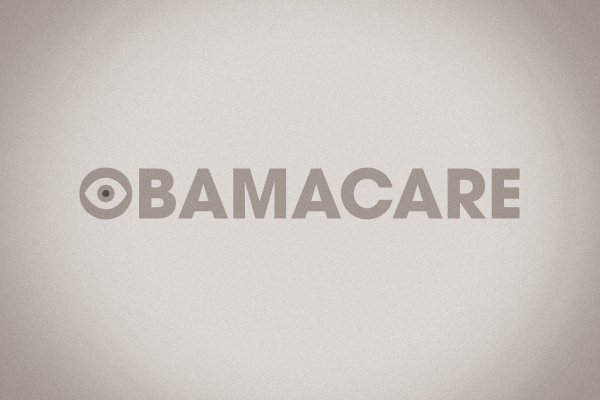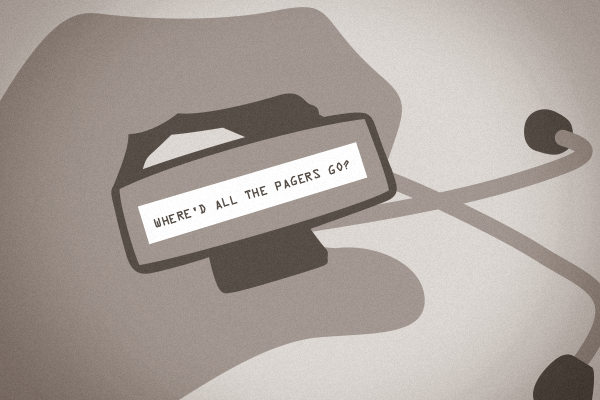Have you checked out Mind The Gap yet? It’s a blog written by Stephen Wilkins, MPH. He’s interested in physician-patient communication that’s both personal and professional. His most recent post (Via Health Works Collective) addresses the issue of relevancy, something that you might immediately think, that? Oh, I know that. But the truth is, if you’ve been a healthcare professional running through what Michael Tetreault called the “hamster wheel” then you might have developed some bad communication habits.

Even Satisfied Patients Think Direct Care Is “Too Good To Be True”
Dave Chase continues his Forbes expose awakening business and industry types to the benefits of direct primary care (DPC). Now having interviewed more and more DPC consumers, the recurring theme to their comments is something like “it’s too good to be true.” That’s a concern we had. You have this straight-forward, commonsense approach that saves everyone time, cuts insurance expenditures, cuts downstream high-cost treatments and can make doctors more money… The people who experience it love it. But how do we convince other people that it’s really happening, when happy patients can’t even believe it?

Are Doctors Passing The Buck On Healthcare Costs?
Eryn Brown of the LA Times posted an article yesterday claiming that physicians are concerned about skyrocketing healthcare costs. However, according to survey results released earlier in the week, most doctors don’t believe they have a “major responsibility” for reducing those costs.

Six In 10 Physicians Believe Many Doctors Will Retire Earlier Than Predicted
A Deloitte survey reports that a majority of physicians believe many doctors will retire earlier than planned in the next one to three years. The same percentage think medical experts losing control of their clinics will jeopardize the healthcare administration. This group also believes strongly that implementation of the Affordable Health Care for America Act, or Obamacare, will push doctors out of the primary care industry altogether.
A spokeswoman for the Association of American Physicians and Surgeons, Dr. Jane Orient, was not surprised by the results at all. In a recent WND article, it was reported that she said doctors already have started leaving the profession through early retirement. Of course, some will instead seek alternatives to what they see coming in the federal government’s takeover of health care. And that’s why we’ve been championing our model of direct care. Because the worst outcome is a doctor not practicing at all. And if that’s what an overregulated market will encourage, then we have a serious problem.

LINKS: Will “Federal Data Services Hub” Pose An Obamacare Privacy Risk?
We came across an opinionated article on Rare.us asking, “Would you trust thousands of low-level Federal bureaucrats and contractors with one-touch access to your private financial and medical information?” Our immediate answer was of course not. But with Obamacare’s enactment, we might not have a choice. That’s because of something called the Federal Data Services Hub. This Data Hub will supposedly be a comprehensive database of personal information established by the Department of Health and Human Services (HHS) to help with the federally facilitated health insurance exchanges.
To paraphrase, with Obamacare, each state will need to have a transparent state insurance market (currently not every state has one). If a state creates and operates one themselves, then great. But if they don’t, the government will “run” one for them. And to help “run” this state insurance market, the Obama administration is planning to hire “tens of thousands” of “navigators” earning “$20 an hour or more” to help guide buyers to their taxpayer-funded coverage, according to the Washington Examiner.
Here’s a round-up of articles to give you a more complete picture of the Federal Data Services Hub:

Congress’ Actions Speak Louder Than Words
So we came across some share-worthy news today. Here’s a quote from CMT, referencing Congressional healthcare benefits:
“One of the most unusual perks may come from the Office of the Attending Physician of the United States Congress. For an annual fee of $503, House and Senate members can designate the official congressional physician to be their primary care doctor — meaning they never have to leave Capitol Hill, deal with crowded doctor’s offices or be subject to the same type of care from a doctor as the rest of us.”
This sounds kind of like their own personal doctor, that’s available 24/7, for a fixed yearly price (that’s about a third of what we charge hard working Americans), who provides primary care, same day, with no waits, who fields calls directly… which sounds a lot like what we offer at Atlas MD.

Personal Injury Lawyer Takes Interest in “Cash-Only” Medicine
This came as a surprise, but Console & Hollawell P.C., personal injury attorneys based in New Jersey, Pennsylvania and New York have taken interest in cash-only medicine. They posted an optimistic essay after interviewing three successful doctors who’ve left the insurance-based pay-for-service system. This included our own Dr. Doug Nunamaker, who had a chance to share his motivations for practicing Atlas MD-style of primary care. If you’re looking for a personal essay laying out the possibilities made possible by exiting insurance-based medicine, this is it. It’s definitely worth sharing with your online network.

Will Pagers Go The Way Of The Dodo? Not If Doctors Can Help It.
In a new post on Fortune, writer Verne Kopytoff looks into the current state of pagers. At their heyday in the mid 90s, some 61 million of the devices were in use. But since then numbers have dwindled to around five or six million today, according to Ronald Gruia, an analyst with Frost & Sullivan. It’s an educated guess, though because Frost & Sullivan officially stopped tracking the pager market in 2006. That’s because of their admitted irrelevance.

Are Health Plans REALLY Going To Fall 50% in New York?
Many outlets are reporting on a New York Times article claiming that “health plan costs for New Yorkers are set to fall 50%” as changes under the federal health care law take effect. This was announced by Gov. Andrew M. Cuomo on Wednesday, July 17. He is quoted as saying, “New York’s health benefits exchange will offer the type of real competition that helps drive down health insurance costs for consumers and businesses.”
One problem with the article is that it actually says, “While the rates will fall over all, apples-to-apples comparisons are impossible from this year to next because all of the plans are essentially new insurance products.” This immediately got us thinking, well where did a 50% price drop come into play?

